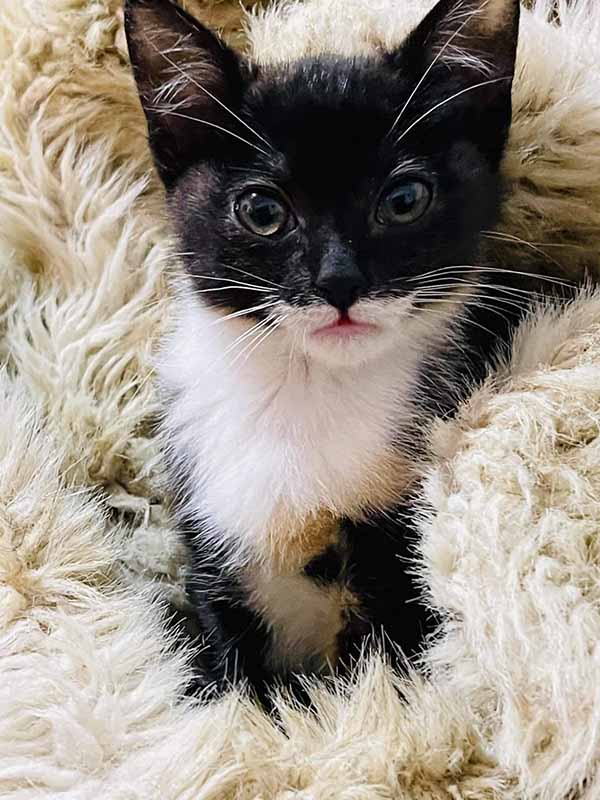Cat Health
Kitten
0-6mths (0 – 10yrs in human age)
These guys are curious! They love to check out the brand new world they are in and can usually be found tearing around the house, playing with their favourite toy or napping (kittens need their rest) There is a lot of new information to absorb when getting a kitten, read below for an easy guide to keeping your kitten happy and healthy:
Veterinary care required and how often to get it
Health check and physical exam – every 2-4 weeks until 4 months of age and at the time of desexing
Vaccination – every 2-4 weeks until 16 weeks of age (a total of 3 before 16 weeks is recommended)
Microchip – this is a legal requirement in NSW and needs to be done before 4months of age or before the kitten is adopted or purchased from a breeder/pet store etc.
Desexing – this can be done as young as 8 weeks and is common for shelters, we recommend neutering between 3-6 months of age, though there are substantial discounts in registration fees if desexed before 4months of age
Weight checks – can be performed at every health check or more often if you are concerned
Worming – every 2 weeks until 12 weeks, then monthly until 6 months and then every 3-12 months depending on lifestyle
Flea and tick control – monthly (some products can be applied every 3 months) – it is best to chat with your vet about what is the right treatment for your kitten.
Nail trims – not super necessary at this age but if you want to be able to do it regularly in the future, now is when you should start getting them used to it.
Blood pressure checks – not required unless indicated for health reasons
Urine tests – not required unless indicated for health reasons
Blood tests – not required unless indicated for health reasons or your cat is undergoing an anaesthetic.
Pet insurance – This is recommended and there are a lot out there, so please do your research and make sure you insure your kitten as soon as you get them home. Keep an eye out for any breed specific exclusions.
*These recommendations may vary between vets; these suggestions are based on our desire to keep your cats safe and happy!

Tips for raising a healthy, happy, kitten.
Encourage play and stimulate their minds!
Use cat and kitten specific toys – feather wands, balls with bells, cat nip mice etc. If they start to play bite/scratch with your hands/toes etc., stop play, make a loud startling sound, and divert their attention to a more appropriate toy such as a feather wand.
Get them used to being handled.
This tip is super helpful for future vet visits and if your kitten ever needs medicating in the future. Handle their feet, look in their ears and try to get them used to having their teeth brushed. Brush or comb longhaired cats. Cats also need their space, so if they are showing signs that they do not want to be handled anymore – stop and try again later.
Get them socialized
Each kitten will be different, and with a different personality but trying to introduce them to young children and (friendly) dogs while they are young may help them cope with such encounters once they get older. Vet visits will also be part of their life growing up so getting them used to a cat carrier early on can be beneficial for both you and your kitten.
Keep them safe (and feeling safe)
Make sure your kitten has plenty of places in the house where they can go to feel safe – this may be something as simple as a cardboard box or their own specific bed. Cats also like to perch up high, so if it is safe to do so offer them a look-out (high cat tree, top of bookshelf etc.)
Please do not ever allow lilies in your house and keep locked away any household cleaning products, medications or food a curious kitty may want to explore. Hair ties, wool, thread or string can also cause intestinal blockages requiring surgery so should be kept out of reach from the curious kitten!
Feed them well.
Cats are obligate carnivores and that means they need animal protein to survive. Diets that have a high meat source are best and incorporating some wet food in their diet is preferred, as cats naturally do not drink enough water.
Dry food is also an acceptable diet – make sure it is one with the right nutrients for your kitten,
If your kitten has come home with a particular diet from the breeder/adoption center etc., continue on this food and gradually change their diet if that is what you want to do. A sudden change in diet can lead to an upset stomach.
